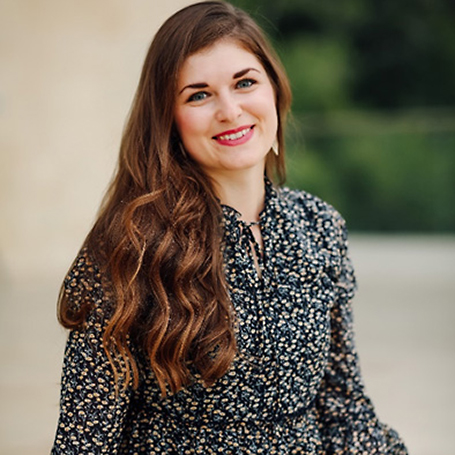Stefaniea Klermund, InterRail Business Development Manager since December 1, 2021, is responsible for the strategic development of InterRail products and services, the identification of new markets and customer needs, and key account management for the entire InterRail Group. She holds a Master’s degree in Logistics and Transport Management, speaks German, English and Hungarian, and lives in Vienna with her family. After 100 days in her new position at InterRail, we had a few questions for her.
Stefaniea, how were your first 100 days “in office”? What have you been busy with?
I received a very nice and warm welcome at InterRail and I am happy to be part of a successful family business. From the very beginning, I have been given exciting and responsible tasks, which motivates me personally. I am working on new markets like Turkey, Japan or on alternative transport routes between Europe and Asia. At the moment, I am trying to put the collected ideas and potentials for InterRail on paper in the form of a business plan.
Another current topic, as in many industries, is sustainability. It is a long process to analyze potential relocation opportunities and thus improve the carbon footprint of the company and of our customers.
In addition, I work on customer requests that are not common and that go beyond the current portfolio. These include customized block train solutions for automotive customers, for example.
Due to the current geopolitical situation, the tasks and topics have of course changed to some extent. We are currently trying to find the best possible solution for the Middle Corridor route.
Where do you see the greatest potential for the development of InterRail traffics?
Steady growth in volume, an increased modal shift to rail, and an intensified presence in the market. Beside Europe – Asia traffics, InterRail also focuses on CIS countries, India, Japan, intra-European rail solutions and tries to diversify.
Are there any new markets that are developing, new destinations that are gaining in importance?
Due to the current political situation not only new destinations but also new corridors will gain importance. Time will tell how the sanctions will affect, among other things, overall pricing, modal shift and alternative corridors. I think the importance of the Middle Corridor of the Silk Road will increase and I hope that customers will adopt this solution as an alternative. This also demands a high flexibility for InterRail to successfully handle the new challenges operationally.
Due to the pandemic, companies have reconsidered the agility of their supply chain and positioned some production sites closer to the sales market, such as to Turkey.
The InterRail Group sees great potential in markets like Turkey and is well on its way to further growth. Due to the current situation, it is possible that this effect will be further strengthened. The InterRail Group sees great potential in markets such as Turkey and is well on its way to further growth. Among the three most important trade markets for Turkey are China and Germany.
My personal interest and know-how have been in reefer container transports by rail for quite some time. Due to the complexity in the planning and implementation of such transports, it is at this stage still a vision of the future to get reefers rolling.
What are the requirements of InterRail’s customers?
In general, this really depends on many factors; for some customers, transit time is crucial, for others, the transport rate is more important, and for still others, good service and communication are the top priorities. For many customers, agility is significant to provide quick solutions adapted to the current transport situation. Personal, regular and honest customer contact is very important to me in order to do business together successfully.
What is your motto?
“Life is like riding a bicycle. To keep your balance, you have to keep moving.” (Einstein)
